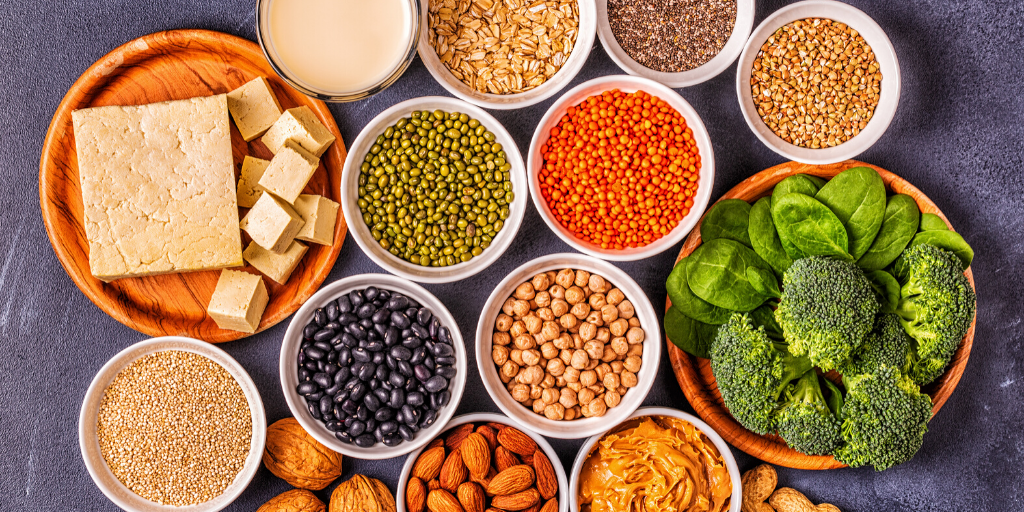An Important Macronutrient, Protein Is Found In Every Cell And Affects Everything Including Immune System Response And Muscular Development. Wellhealth Organic.Com Has A Plethora Of Material Regarding The Value Of Protein, Several Sources, And How Best To Include It Into Your Diet. This Guide Seeks To Investigate The Importance Of Protein, Its Several Forms, Sources, And Strategies For Best Consumption Of This Nutrient.
Understanding Protein And Its Purposes:
What Is Protein?
The Building Blocks Of The Body, Amino Acids Make Up Protein. There Are Twenty Distinct Amino Acids, And They Mix In Different Ways To Produce Hundreds Of Proteins. Although The Body Can Create Several Amino Acids, Nine Of Them Are Vital And Must Be Gotten From Diet.
Protein’s Purposes In The Body:
1. Muscle Repair And Growth: Athletes And Active People Especially Need Protein Since It Is Crucial For Muscle Repair And Growth.
2. Hormone Production: Hormones, Insulin And Growth Hormone, Are Proteins. These Hormones Control Many Different Physiological Functions.
3. Immune System Function: The Immune System Depends Much On Proteins. Made Of Protein, Antibodies Aid In Battle Against Infections.
4. Enzyme Function: As Proteins, Enzymes Help To Speed Up Chemical Reactions In The Body, Therefore Supporting Digestion And Metabolism.
5. Transport And Storage: Proteins Move Nutrition And Oxygen (Hemoglobin) Among Other Vital Molecules Throughout The Body.
6. Structural Support: Proteins Give Cells And Tissues, Including Cartilage And Collagen In Skin, Structure.
Various Forms Of Protein:
Proteins Based On Animals:
Because Animal-Based Proteins Include All Nine Of The Required Amino Acids, They Are Regarded As Complete Proteins. Common Sources Consist Of:
1. Meat: Rich In Protein And Other Minerals Including Iron And B Vitamins, Meat Includes Beef, Hog, And Chicken.
2. Fish: Fish Offers Good Omega-3 Fatty Acids And A Great Source Of Protein.
3. Dairy Products: High In Protein And Calcium, Dairy Products Such Milk, Yogurt, And Cheese Help To Improve Bone Strength.
4. Eggs: Rich In Vital Minerals And A Flexible And Comprehensive Supply Of Proteins, Eggs
Proteins Found In Plants:
Plant-Based Proteins Can Be Incomplete, That Is To Say They Lack One Or More Of The Required Amino Acids. Combining Many Sources, Nevertheless, Will Supply All Required Amino Acids. Typical Sources Of Plant-Based Proteins Consist In:
1. Legumes: Great For Vegetarian And Vegan Diets, Lentils, Beans, And Chickpeas Are High In Protein And Fiber.
2. Nuts And Seeds: Along With Good Fats, Almonds, Peanuts, Chia Seeds, And Hemp Seeds Supply Protein.
3. Whole Grains: Three Whole Grains With Protein And Vital Minerals Including Fiber And B Vitamins Are Quinoa, Brown Rice, And Oats.
4. Soy Products: Perfect Sources Of Protein For Vegetarians And Vegans Are Tofu, Tempeh, And Edamame.
Daily Proportional Needs For Protein:
Your Protein Need: How Much?
Age, Gender, Degree Of Activity, And General Health All Affect Protein Needs. Generally Speaking, Guidelines Call For:
• Adults: Men’s Recommended Dietary Allowance (RDA) For Protein Is 56 Grams; Women’s Is 46 Grams Daily.
• Active People: Depending On The Degree Of Their Activity, Physically Active People Could Need Extra Protein—Between 1.2 And 2.0 Grams Per Kilogram Of Body Weight.
• Older Adults: With Recommendations Ranging From 1.0 To 1.2 Grams Per Kilogram Of Body Weight, Older Persons May Have Increasing Protein Demands To Help Preserve Muscle Mass.
Signs You Might Want More Protein:
1. Muscle Loss: One Can Find Insufficient Protein Consumption By Unintentional Weight Loss Or Muscle Mass Reduction.
2. Fatigue: Low Energy Levels And More Tiredness Could Indicate A Lack In General Nutrition Or Protein.
3. Frequent Illness: Insufficient Protein Intake Can Compromise Your Immune System.
4. Slow Healing: A Diet Lacking In Protein May Be Indicated By A Protracted Healing From Injuries.
Including Proteus In Your Meal:
Advice On Rising Protein Consumption:
1. Choose Protein-Rich Foods: Add Sources Of Protein To Every Meal And Snack. Try To Strike A Mix Of Proteins From Plants And Animals.
2. Snack Wisely: To Help To Maintain Steady Energy Levels, Choose Protein-Rich Snacks Include Greek Yogurt, Almonds, Or Protein Bars.
3. Add Protein To Smoothies: For A Simple Boost, Toss Yogurt, Nut Butter, Or Protein Powder Into Smoothies.
4. Plan Meals Ahead: Meal Planning Helps You Avoid Last-Minute Unhealthy Decisions And Guarantee That Your Meals Include Protein.
5. Experiment With Recipes: Try New Dishes Emphasizing Protein-Rich Foods Like Chickpea Salads Or Lentil Soups Using Recipes.
Timing Of Protein:
Protein Intake’s Timing Can Also Affect Its Efficacy, Particularly For Those Trying To Grow Muscle. Eating Meals Or Snacks High In Proteins After An Exercise Will Help Muscles Strengthen And Heal.
Possible Dangers Of Too High A Protein Intake:
Although Protein Is Important, Too Much Of It Can Cause Health Problems. High Protein Diets Run Certain Hazards Including:
1. Kidney Damage: For Those With Pre-Existing Renal Diseases, A High Protein Consumption Could Aggravate Their Condition.
2. Dehydration: High Protein Diets Can Cause Water Loss, Hence, If Fluid Consumption Is Insufficient, Dehydration Results.
3. Nutrient Deficiency: Emphasizing Protein Alone Too Much Could Cause A Deficiency Of Other Vital Nutrients Including Carbs And Good Fats.
4. Heart Health: Some High-Protein Diets Stress Red And Processed Meats, Which If Not Counterbalanced With Plant-Based Foods Can Raise Heart Disease Risk.
Final Thought:
From Muscle Development To Immune System Maintenance, Protein Is A Basic Macronutrient Supporting Many Body Processes. For General Health, One Must Know The Several Sources Of Protein, Daily Needs, And How Best To Include It Into Their Diet. Wellhealth Organic’s Data Can Help You Decide How Much Protein You Should Consume To Further Your Wellness Or Health Objectives. If You Have Particular Dietary Questions Or Health Issues, Give A Balanced Diet First Priority; Pay Attention To Your Body’s Needs And See A Healthcare Specialist.

